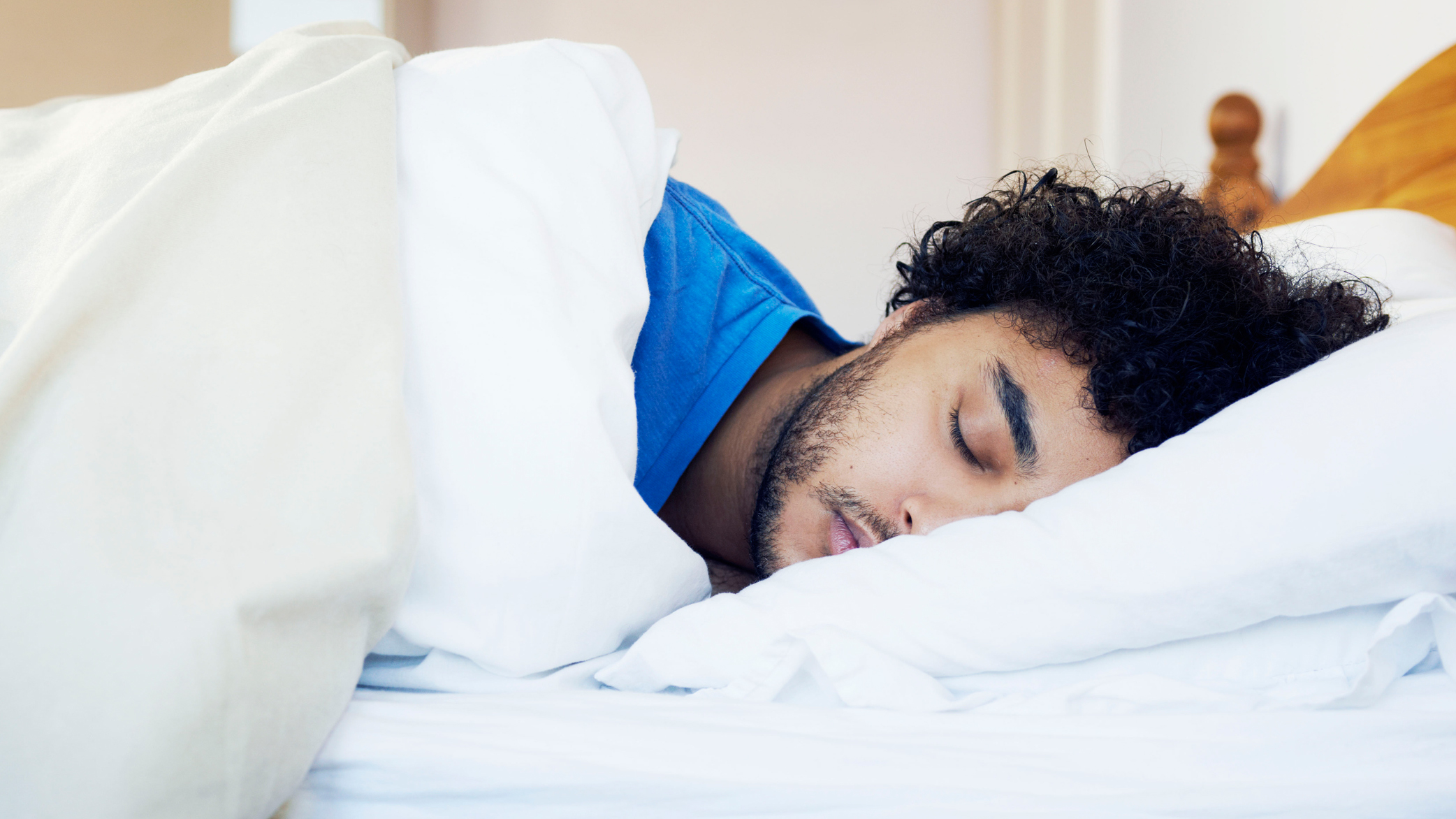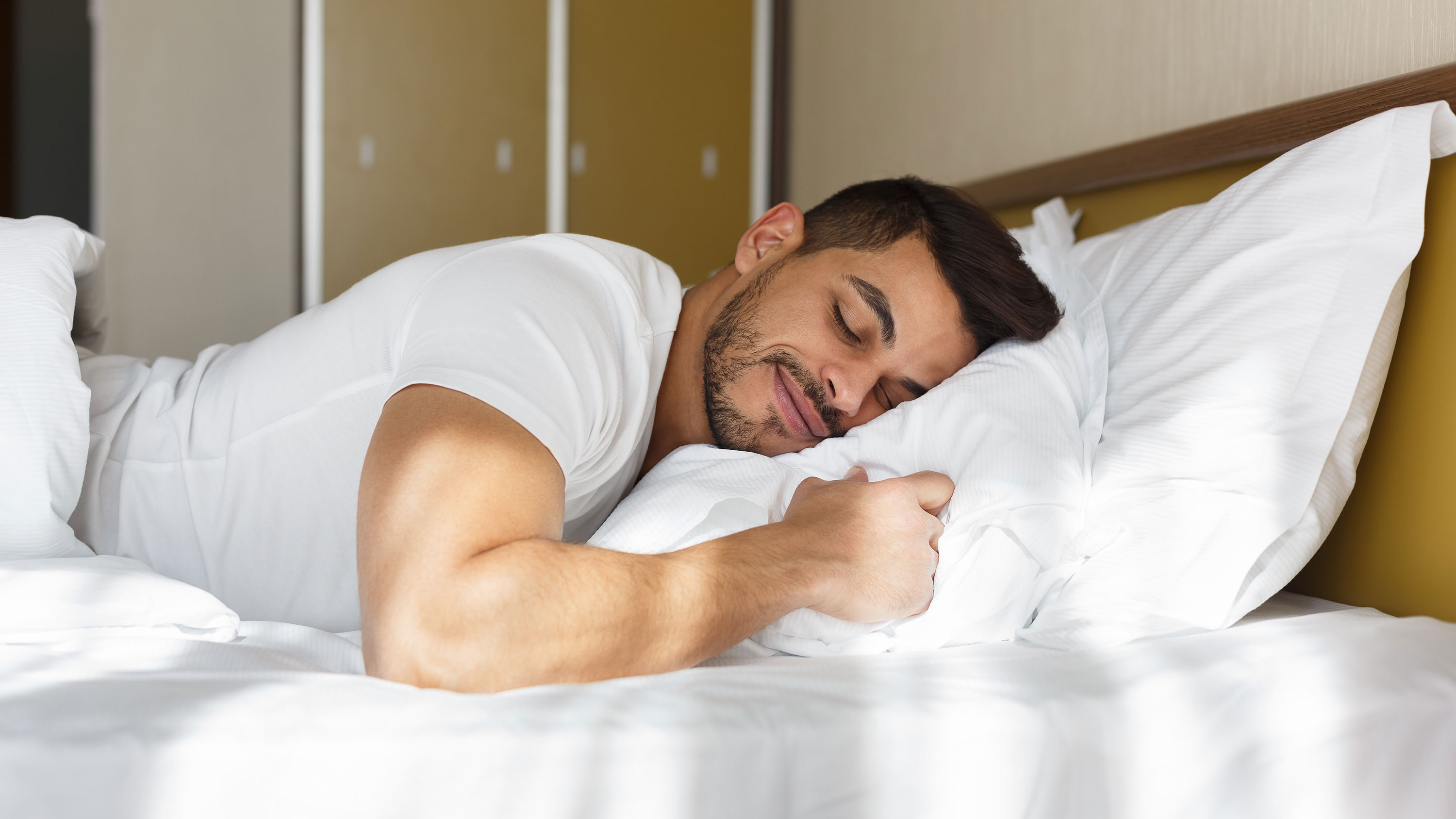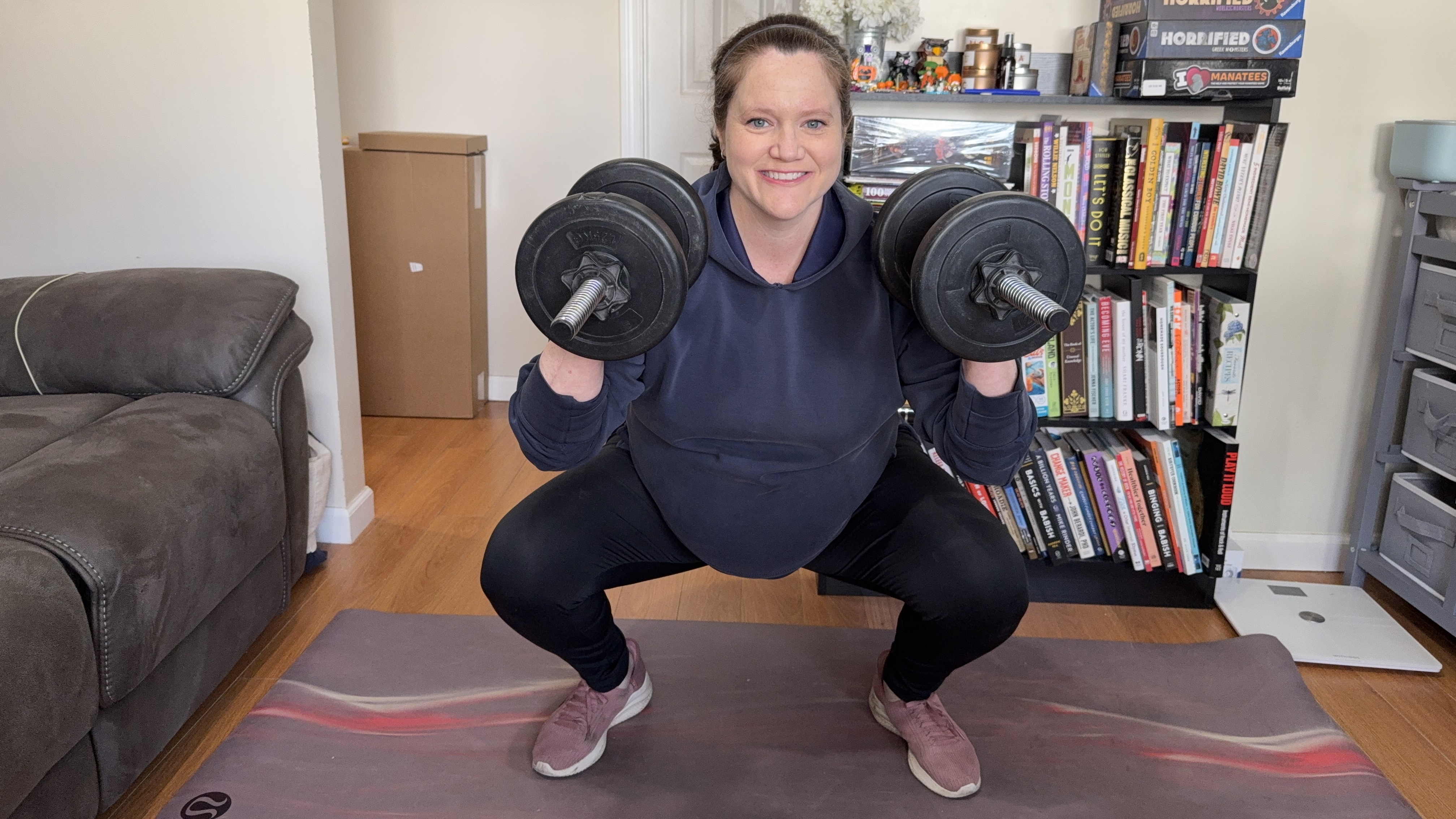Sleep: Research says this top sleeping product can help you beat insomnia
Sleep better with a weighted blanket, which scientists have found is a safe and effective insomnia treatment for better sleep


We all know sleep is vitally important to our mental and physical health, but we just don't get enough of it. Often, this is no fault of our own: chronic lack of sleep or insomnia is extremely common, with nearly a quarter of UK adults suffering in some capacity.
Those adults get less than five hours sleep per night, despite seven-to-eight hours being the recommended amount, according to a study from insurance firm Aviva. You could try several therapy methods, such as the best diffuser for essential oils, which has been proven to get great results, but now there's a new weapon in your sleeping arsenal: weighted blankets.
- Best SAD lamps: Combat SAD and wake up to sunlight
- PLUS: There's still time to get your fitness gifts
The study, conducted by researchers at the American Academy of Sleep Medicine and published in the Journal of Clinical Sleep Medicine, examined the effects of a weighted blanket on participants for a four-week period.
The results were extremely encouraging. The participants reported "significantly reduced insomnia severity, better sleep maintenance, a higher daytime activity level, and reduced symptoms of fatigue, depression and anxiety."
This is all said to be the work of the calming and sleep-promoting effect of the blanket's pressure. A "chain" weighted blanket targets different points on the body, stimulating your sense of muscles and joints. The participants were said to be 25 times more likely to have their insomnia severity decrease by 50% or more.
Dr Mats Aider, the study's lead author, said: "There is evidence suggesting that deep pressure stimulation increases parasympathetic arousal of the autonomic nervous system and at the same time reduces sympathetic arousal, which is considered to be the cause of the calming effect."
If you're having trouble nodding off in the first place, an easy (and free) solution is mindfulness meditation. It can be quite flippant to suggest something like meditation to battle chronic insomnia, but there is some evidence-based theory behind it.
Get the Fit&Well Newsletter
Start your week with achievable workout ideas, health tips and wellbeing advice in your inbox.

One study, published in the Journal of the American Medical Association, found those who did mindfulness meditation exercises before bed showed "significant improvements" on the negative health outcomes of insomnia, depression and fatigue. This includes inflammatory signalling caused by mental health issues and lack of sleep, which can be a precursor to cancer in some cases.
More on sleep:
- How to fall asleep fast
- How to fix your sleep cycle: 7 tips to get a better night in bed
- Track your sleep cycles digitally with our best Fitbit deals
Matt Evans is an experienced health and fitness journalist and is currently Fitness and Wellbeing Editor at TechRadar, covering all things exercise and nutrition on Fit&Well's tech-focused sister site. Matt originally discovered exercise through martial arts: he holds a black belt in Karate and remains a keen runner, gym-goer, and infrequent yogi. His top fitness tip? Stretch.
-
 “Working out doesn't have to be boring”—why I love this trainer’s Cha Cha Slide fitness challenge
“Working out doesn't have to be boring”—why I love this trainer’s Cha Cha Slide fitness challengeBuild core strength and get strong shoulders with this dance-themed challenge
By Maddy Biddulph
-
 A personal trainer says this is the HIIT workout to do if you’re over 40—here’s what I think
A personal trainer says this is the HIIT workout to do if you’re over 40—here’s what I thinkThis no-impact workout delivers lots of high-intensity cardio without major stress on your joints
By Jennifer Rizzuto